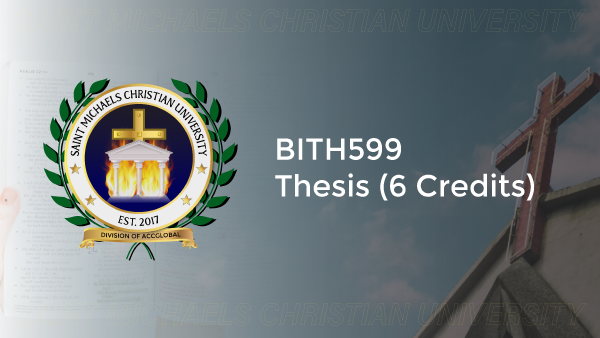Overview
The purpose for this course is to help students to be aware of the major issues raised in the careful study of the Old Testament in the modern world. In order to better understand the material in the Old Testament, it is important to know the historical background, context, time period being addressed, authorship, and issues that are considered. For many of these questions, there are different points of view suggested by different scholars. It is important to know why scholars differ and to be able to explain this for our lessons or Bible studies.
PURPOSE:
The purpose for this course is to help students to be aware of the major issues raised in the careful study of the Old Testament in the modern world. In order to better understand the material in the Old Testament, it is important to know the historical background, context, time period being addressed, authorship, and issues that are considered. For many of these questions, there are different points of view suggested by different scholars. It is important to know why scholars differ and to be able to explain this for our lessons or Bible studies.
OBJECTIVES:
1. Students should be able to outline and explain the major viewpoints on introductory issues of the various Old Testament books. These would include authorship, date, historical background, and message of each book.
2. Students should be able to trace the development of the different views and methods of approaching the Old Testament. How did these positions arise, and how did the various groups come to their present positions on these issues.
3. Students should be familiar with representative scholars from the various modern views toward the Old Testament. Who are the major people involved in the rise of these issues, and who are the major people today?
4. Students should be able to apply the general principles of introduction to the understanding of particular books. We do not want to leave this material in the ancient past. How is it important in ministry, in teaching, preaching and working with others today?
ACADEMIC HONESTY
Academic honesty is expected of all students. Any form of cheating, copying,or dishonesty is unacceptable. Plagiarism is another form of academic dishonesty that can be problematic because students are not always sure what this involves. For a brief explanation with examples, everyone should read the following webpage carefully: www.indiana.edu/~wts/pamphlets/plagiarism.shtml
ASSIGNMENTS
By week 3 – Read online article on Documentary Hypothesis at www.crivoice.org/jedp.html and http://www.religion-online.org/showarticle.asp?title=24 then write a 2 pages response to these articles.
By week 6 – Read the online article about the Deuteronomistic History at http://hillel.myjewishlearning.com/texts/bible/TO_Prophets_1460/DeutHist.htm , and then write a 2 pages response to this article.
By week 9 – Defend one of the standard dates and routes of the Exodus, or survey the strengths and weaknesses of the two proposed dates. (5 pages) http://www.biblicalstudies.org.uk/article_exodus_de-wit.html http://bible.org/article/introduction-book-exodus
COURSE REQUIREMENTS:
1- Complete the weekly lessons
2- Complete the weekly textbook reading assignments
3- Complete the weekly quizzes
4- Complete the 3 written assignments
5- Complete the Final exam
The final grades will be based on the following categories:
| CATEGORY | Lessons | Quizzes | Assignments | Final Exam |
| WEIGHT | 25% | 25% | 25% | 25% |
GRADING
| GRADE | PERCENTAGE |
| A | 90% -100% |
| B | 80% -89% |
| C | 70% -79% |
| D | 60% -69% |
| F | 0% -59% |
Required Textbook:
An Introduction to the Old Testament Tremper Longman & Raymond D. Dillard Zondervan Publishing, 2006 ISBN 0310263417

An Introduction to the Old Testament…
Tremper Longman II…
Best Price $12.60
or Buy New $23.72
